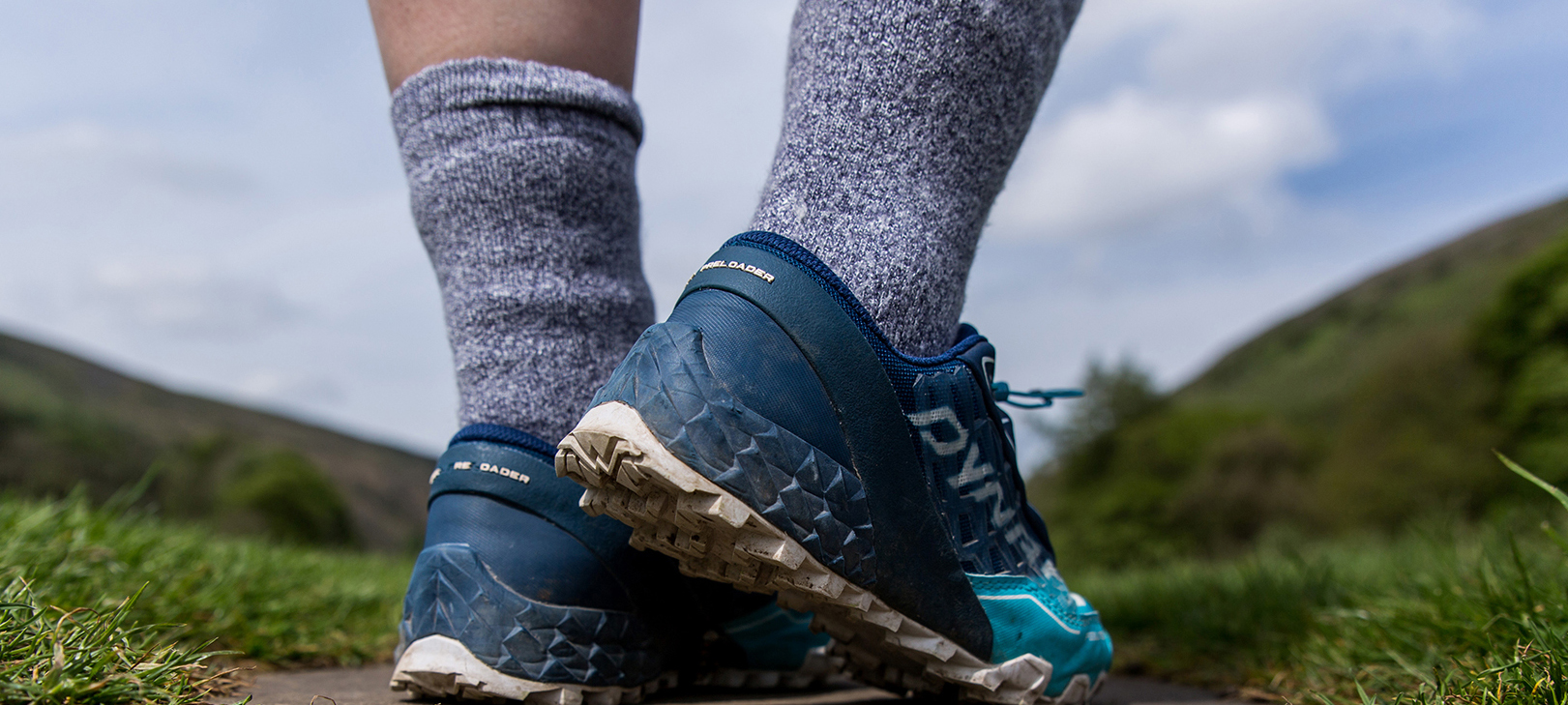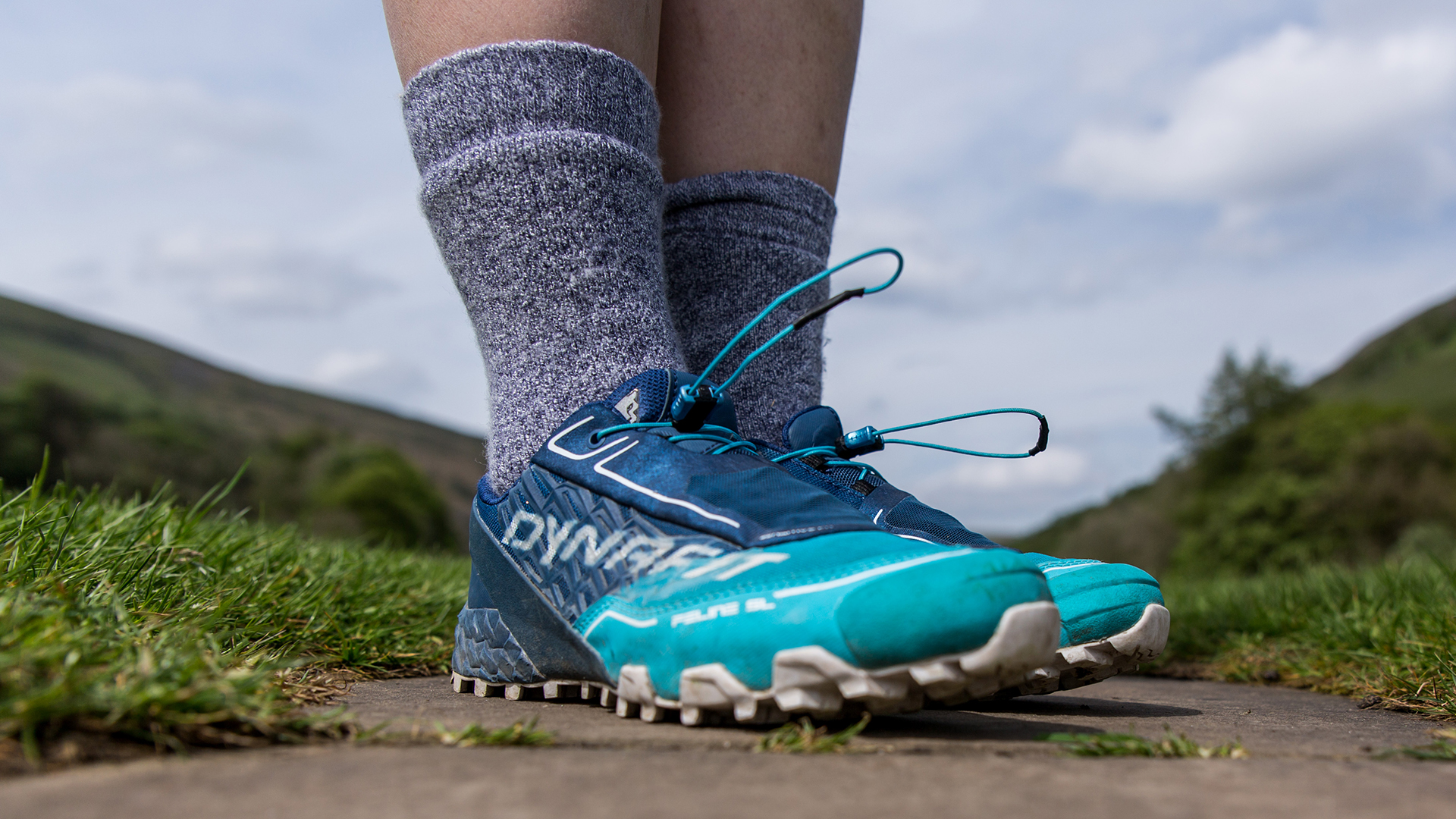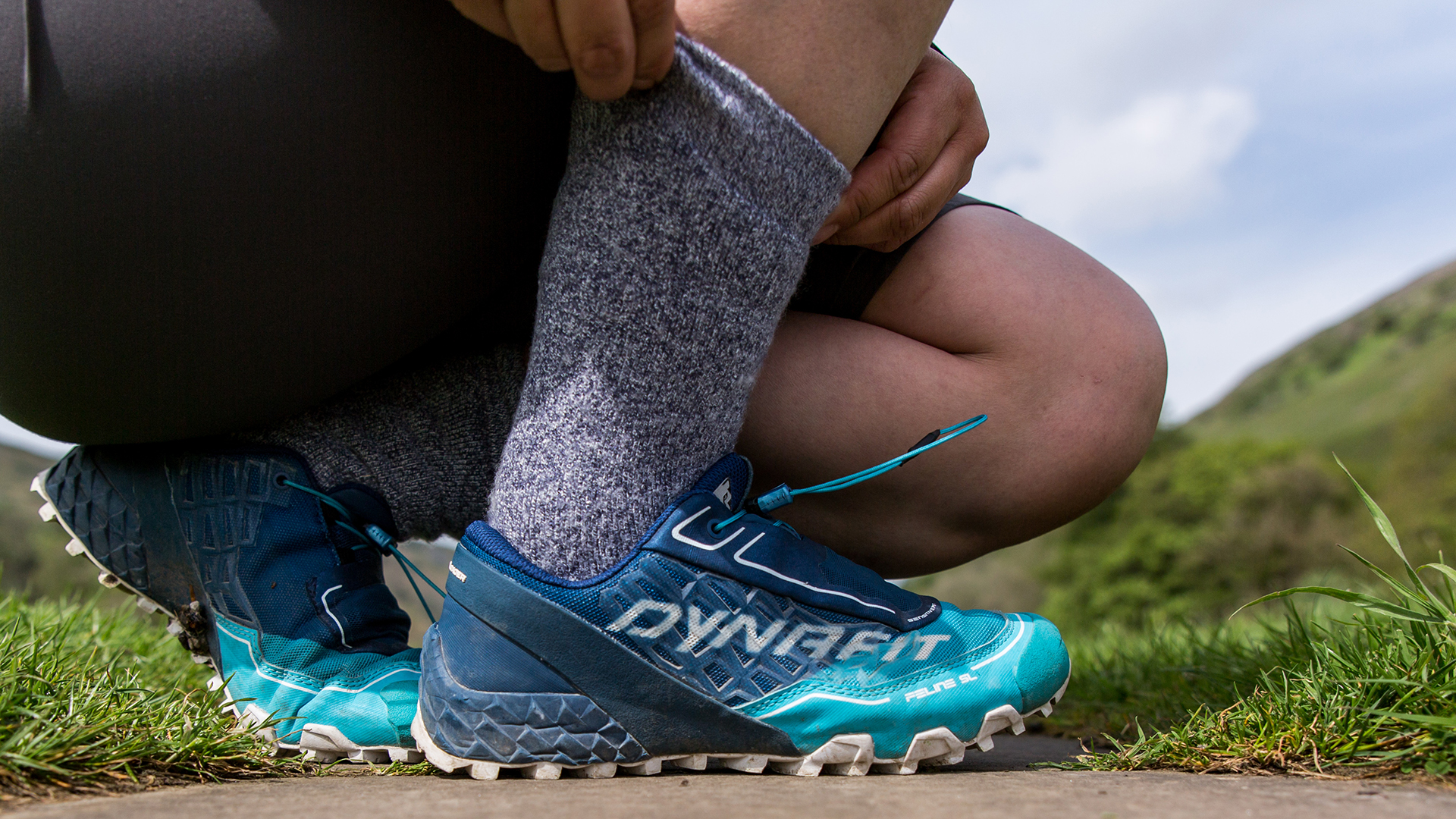
Meet the reviewer
BAM Twist Walking Socks: first impressions
Step aside boring hiking socks of yesteryear – the BAM Twist Walking Socks in a merino-bamboo blend should be in every hiker’s sock drawer.
• List price: $28 / £18
• Sizes: 4-7 (UK) / 37-41 (EU); 8-11 (UK) / 42-46 (EU)
• Weight: 2.4oz / 70g
• Colors: Amazon / Bright Rose & Salt / Blue & Salt
• Compatibility: Hiking
As someone who is typically outside for up to nine months of the year, come wind, rain or shine, my adventures require hiking socks that are durable, resistant to bacteria and that (hopefully) stay in place. I’ve tested BAM socks before and found the classic socks to be so comfortable that I’ve worn them daily. So how would the BAM Twist Walking Socks fare on back-to-back days along the Alfred Wainwright coast-to-coast path in the north of England?

BAM Twist Walking Socks: on the trails
The socks perhaps would perhaps be overkill for warmer sunnier climates, but they were ideal when admiring the endless meadow flowers of Swaledale in highly changeable spring weather. I found the socks well suited to the conditions, offering the perfect amount of insulation and comfort for the mix of footpath, flagstones and grassy terrain.
It’s hard to believe that the BAM Twist socks have bamboo in them, as they feel surprisingly fluffy to the touch. With the combination of merino and bamboo, the socks feel good next to the skin, while a reinforced toe and heel helps keep the foot supported throughout long hikes. The socks also have a full terry lining for extra protection and durability without the bulk of traditional wool socks. Use of natural fibers means the foot can breathe, which helps prevent blisters and smelly feet – no need for offensive socks to be thrown out of the hiking shoe bag!
In terms of durability, they feature an arch and ankle rib to help prevent slipping or twisting. They stand up to multiple washes, although it is worth putting them in wash bags and using the right spin cycle.
Finally, the socks are available in a range of natural colors with the BAM branding woven into the sole of the sock.
BAM Twist Walking Socks: eco credentials
What’s impressive about buying from BAM is the extent of information available as a consumer to ensure you're well informed at the point of purchase, with several documents on sustainability and environmental impact available on the website. Product transparency is more important than ever, and looking at the BAM Twist Walking Socks, the exact locations of where the raw materials are sourced is clear to find under the tab ‘DNA’. For the bamboo, this includes three locations in China – Chengdu, Shaowu and Pucheng – before it is transported and woven with merino wool in the factory.
Bamboo is cited as a more sustainable fiber compared to hardwood trees as it needs little to no irrigation or pesticides. Bamboo also grows so rapidly that it requires less land and can be harvested without damaging root systems and surrounding habitats. Bamboo can also store carbon and regenerate soil habitats.

Using merino wool – currently sourced from Australia, Argentina and New Zealand – means the socks have excellent performance qualities. BAM also uses transaction certificates to verify the origin of its wool, ensuring it comes from sources with responsible land stewardship practices as well as high animal welfare standards, including a ban on mulesing (the harmful process of cutting a sheep’s skin to prevent flystrike infection).
BAM is not perfect, and the DNA also cites the use of recycled polyamide which – although it’s taken from fishing nets and packaging – still leaves a carbon footprint. Even so, it has a significantly lower carbon impact than virgin polyamide from non-renewable fossil fuels.
Overall, the story of the BAM Twist Walking Socks shows that eco-fashion can be made with human, environmental and economically sustainable considerations at its heart. BAM is vocal in its partnership of the Fair Wear Foundation, making sure workers have improved working conditions and protecting them against discrimination, as well as following anti-child labor protection policies.







